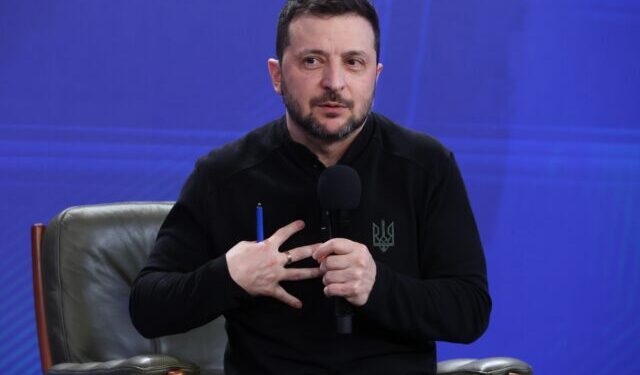In a steadfast display of leadership, Ukrainian President Volodymyr Zelenskyy has firmly rejected immediate ceasefire proposals with Russia, despite enduring a grueling three-year conflict against a formidable adversary. This decision underscores his unwavering commitment to securing robust and enforceable security guarantees before considering any cessation of hostilities.
During a recent summit in London, Zelenskyy received an outpouring of support from European leaders, which appeared to bolster his resolve to continue defending Ukraine’s sovereignty. He emphasized that without concrete security assurances, any ceasefire would be precarious, stating, “If you don’t have an end to the war and you don’t have security guarantees, no one is able to control a ceasefire.”
Zelenskyy’s apprehension stems from Russia’s history of violating previous ceasefires, leading to renewed aggression. He insists that meaningful deterrents must be established to prevent future conflicts, highlighting the necessity of enforceable security guarantees.
In contrast, U.S. President Donald Trump has argued that past agreements were undermined under previous administrations and believes that a ceasefire could serve as an initial step toward a comprehensive resolution between the two nations.
French President Emmanuel Macron has proposed a month-long truce encompassing air, sea, and energy infrastructure, but Zelenskyy has yet to publicly respond to this initiative.
The London summit, convened by British Prime Minister Sir Keir Starmer, brought together over a dozen European leaders to discuss Europe’s role in facilitating peace. Starmer and Macron aim to develop a framework for a peace agreement with Ukraine, intending to present it to Washington. However, despite their efforts, no additional nations have committed to the proposed pan-European peacekeeping force.
Prime Minister Starmer has expressed willingness to deploy British troops and aircraft to support Ukraine but acknowledges that such a force would require U.S. backing. Washington has been cautious, citing concerns over triggering a direct confrontation between major nuclear powers.
Despite a contentious meeting with President Trump, which resulted in criticism both domestically and internationally, Zelenskyy remains resolute in his stance. European leaders, including Italian Prime Minister Giorgia Meloni, have urged Zelenskyy to reconcile with the U.S. president to maintain Western unity.
In a bold declaration, Zelenskyy has expressed willingness to resign if it would facilitate Ukraine’s admission into NATO, underscoring his dedication to the nation’s security. He maintains that Ukraine’s freedom is “not for sale” and emphasizes the importance of securing stronger NATO ties to deter future Russian aggression.
As the situation unfolds, the international community watches closely, hopeful for a resolution that ensures Ukraine’s sovereignty and stability in the region.




















